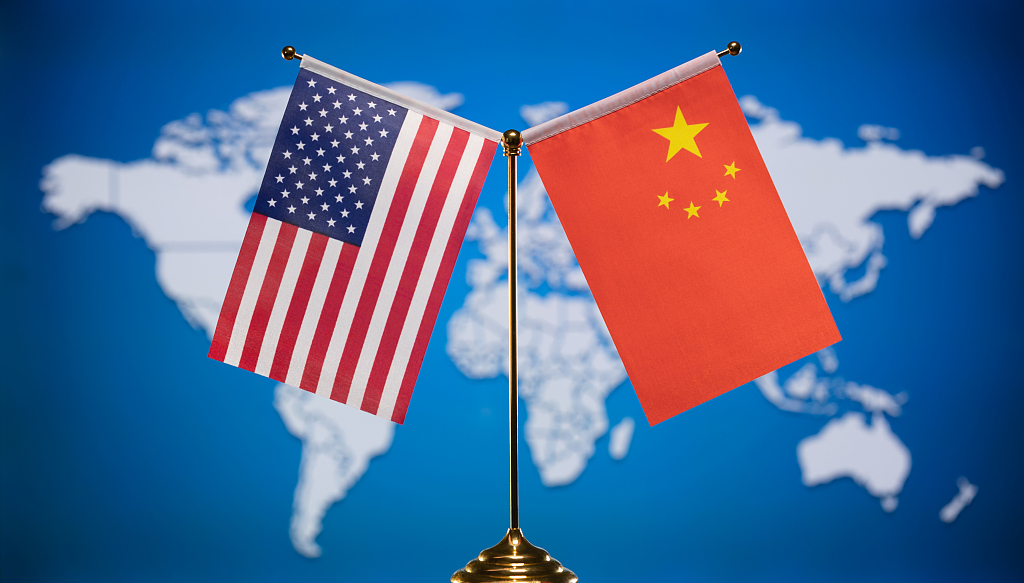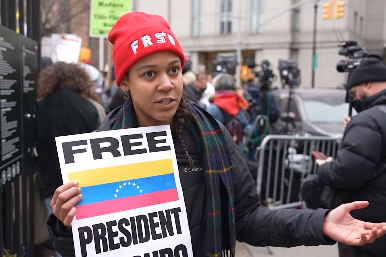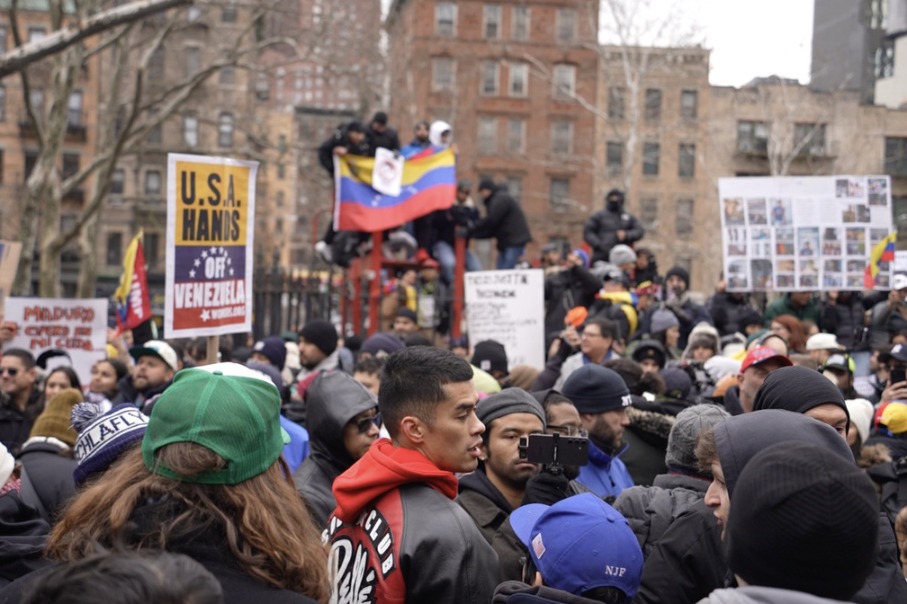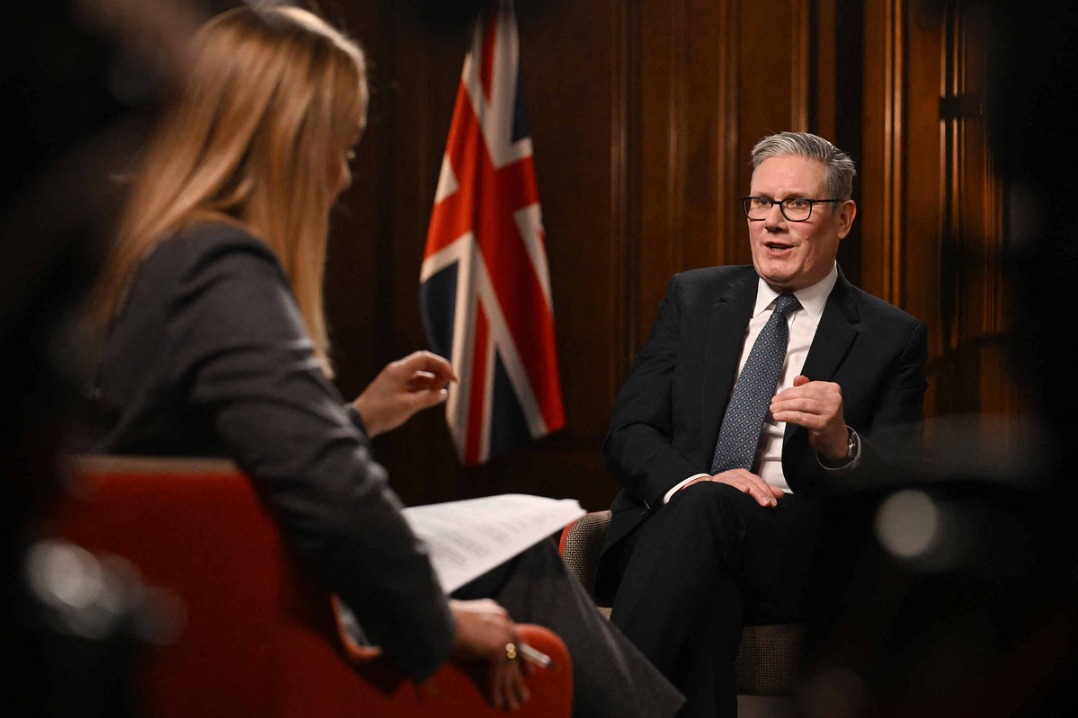US tariff move runs against free trade order


While China and the United States announced on Monday the slashing of tariffs imposed on each other, it is premature to assume that trade tensions between the two largest economies have been resolved. It is quite possible that the US administration will change its stance again in the coming months.
Ever since US President Donald Trump declared his "Liberation Day" in March, the White House has been at pains to justify the high tariffs imposed on trade partners, insisting that the rest of the world has been benefiting from the US economy and free market while imposing various restrictions on its industries and goods.
So why did China have to bear the worst of the tariffs? It is not only because it fights back but also because its economic success is deemed a challenge — with the potential to surpass the US as the world's top economy in terms of nominal GDP. However, as a significant civilization with a rich history and broad reach, China has its own considerations and will not succumb to US coercion.
Trade confrontations conceal a larger global crisis. The problem in the US is not merely about a trade imbalance favoring China — with a trade deficit in goods of $295.4 billion in 2024, according to data from the Office of the US Trade Representative. Rather, it is about a shift in economic power dynamic, with the US losing its position at two levels.
First, the US has lost its industrial base to both allied countries such as Canada and non-allied countries such as China, which is more than a choice of convenience for US financiers, industrialists and multinationals.
Second, the US has lost its standing in trade relations with most countries, falling from first to second place in trade partnerships. This shift means that more than 150 countries and regions have now made China their primary trading partner and the first destination for seeking goods and services. This will subsequently lead to a decline in the political and strategic standing of the US.
It is ironic that since the end of World War II, the US has worked to establish a global trade system, repeatedly reminding other countries to open their borders and markets to global capital and goods. This was especially true during and after the Bretton Woods era, which contributed to the establishment of a global financial system based on market liberalization and the removal of all barriers to the flow of foreign capital and goods.
All of these occurred when the US was the world's leading industrial base. Some strategic analysts theorize that the unparalleled US industrial base during World War II rather than its tactics on the battlefield contributed toward achieving victory.
The US knows for certain that the relationship between economic and military power is directly proportional, with the former inevitably attracting the latter for protection. The ongoing geopolitical conflict relies on economic power, which supports military power with the necessary funding, ensuring the continuity of superiority in both areas.
Moreover, during that period, economic and political theories were promoted heavily in the US and globally, supporting the idea of market liberalization, the removal of barriers and noninterference in market movements. Among the most prominent of these theories is "modern capitalism" and the philosophy of the "shock doctrine", with the Chicago School led by US economist Milton Friedman, who won the Nobel Prize in Economics in 1976 and is the author of Capitalism and Freedom, being its main proponent.
What is happening now is that the US is retreating from these ideas, moving toward closure and protectionism, as the country no longer sees itself as the biggest beneficiary of market freedom and the movement of capital and goods.
The high tariffs amount to initiating a full-fledged coup against the post-World War II international order that Washington helped create, from which it has benefited the most for decades, by waging what was referred to as a "war of liberation", a war on the free trade system, and a strong return to protectionism of a single country.
Now that its economic standing has deteriorated, the US is dismantling international laws and attempting to impose its new agenda on the rest of the world as the current administration believes that the old laws do not serve its interests in the first place.
However, the existent global economic order has its own interconnected logic and multimodal standings across borders in line with international trade laws and practices facilitating economic growth for all. Protectionism and closing markets will only increase economic suffering and harm strategic interests.
All countries bear the responsibility of preventing a single nation from imposing its economic and trade conditions on the entire world. The right course of action lies in increasing strategic partnerships between countries, especially among Asian nations that share common interests.
The author is a senior researcher at the Center for Research & Intercommunication Knowledge in Riyadh, Saudi Arabia.
































